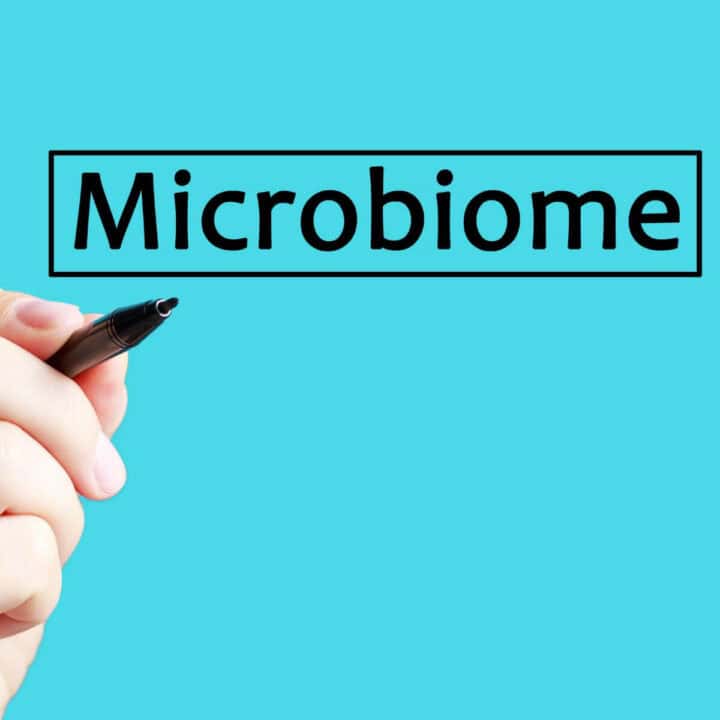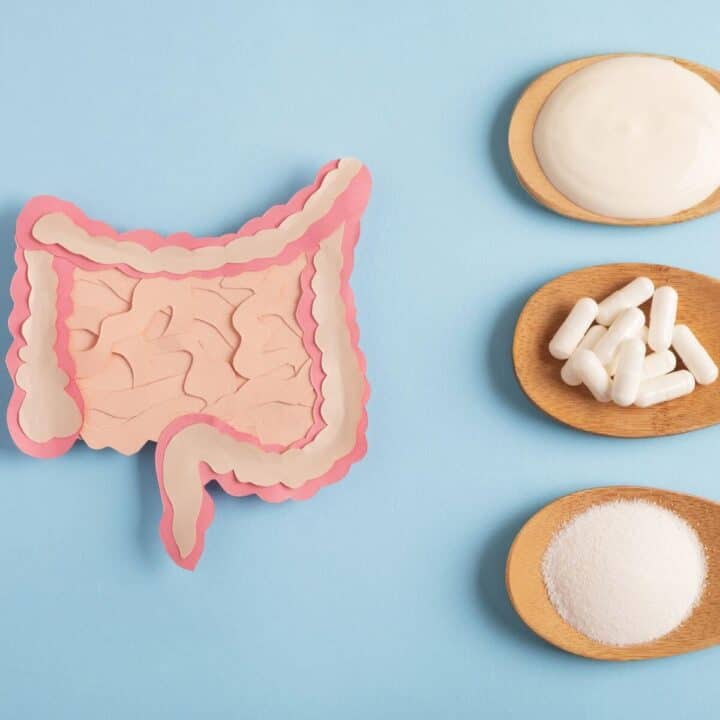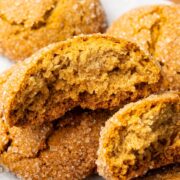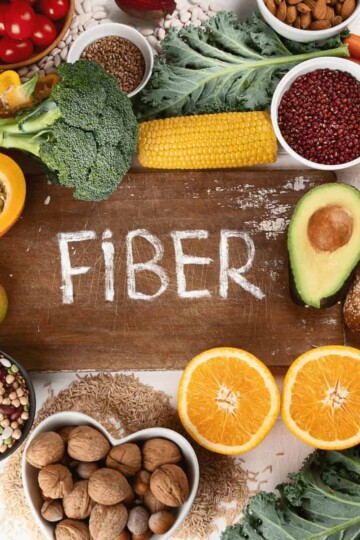The quest for youth and aging gracefully has been of interest for centuries. While genetics, lifestyle choices, and environmental factors all play significant roles, emerging research suggests that a hidden player in the game of longevity resides within us - the gut microbiome. So, how important is the role of the health of your gut microbiome, the aging process, and link to Parkinson's disease? So, let's dive into this topic.

Table of Contents
🦠 Our Gut Microbiome & Aging
Our gut microbiome, this intricate ecosystem of microorganisms, may actually hold the secret to living a longer, healthier life.
The gut microbiome consists of trillions of microorganisms, including bacteria, viruses, fungi, and other microbes, residing in the gastrointestinal tract.
⁉️ Understanding the Health of the Gut Microbiome
It's a dynamic and diverse community that not only aids digestion, but also interacts with our immune system, influences metabolism, and plays a pivotal role in overall health.

👵 Gut Health Longevity Aging Connection
What factors play key roles in the connection between our gut health and anti-aging? So, let's discuss each factor in greater detail.
Inflammation Control
Chronic inflammation is a known driver of aging and age-related diseases. The gut microbiome exerts control over inflammation through its influence on the immune system.
A balanced gut microbiota helps regulate the body's inflammatory response, potentially extending a healthy lifespan.
Nutrient Absorption
Aging often comes with reduced nutrient absorption efficiency. An imbalanced health of the gut microbiome can exacerbate this accelerated aging issue.
Beneficial gut bacteria assist in the absorption of essential nutrients, contributing to overall vitality.
Oxidative Stress Reduction
Harmful bacteria in the gut can produce reactive oxygen species (ROS), leading to oxidative stress and cellular damage.
Additionally, a balanced microbiome helps minimize ROS production, potentially slowing down the aging process.
Immune System Support
The gut microbiome plays a crucial role in training the immune system.
A diverse and well-balanced gut microbiota helps maintain immune system function as we age, reducing risk of infections and chronic diseases.
Hormonal Harmony
Gut health influences hormone regulation, impacting various aspects of aging, including menopause and andropause. A balanced microbiome can help mitigate hormonal imbalances associated with aging.

🦠 Specific Strains and Their Roles
AKKERMANSIA MUCINIPHILA
This beneficial bacterium has gained attention for its potential anti-aging properties. It's associated with improved metabolic health, reduced inflammation, and a healthier gut lining.
Higher levels of Akkermansia muciniphila are linked to better aging outcomes.
BIFIDOBACTERIUM LONGUM
This probiotic strain is known for its anti-inflammatory properties and its ability to support gut barrier function.
It may contribute to reduced inflammation and improved nutrient absorption in older individuals.
LACTOBACILLUS ACIDOPHILUS
This probiotic strain is recognized for its role in maintaining gut health and promoting the production of certain vitamins. It may help maintain a balanced gut microbiota as we age.
FAECALIBACTERIUM PRAUSNITZII
Low levels of this beneficial bacterium are associated with inflammatory bowel diseases and aging-related inflammation.
So, promoting the growth of Faecalibacterium prausnitzii may help reduce inflammation and support gut health.
✅ Gut Microbiome and Anti-Aging Strategies
Now that we understand the profound link between the gut microbiome, aging, and longevity, let's explore practical strategies to support a healthy gut for anti-aging benefits, considering the roles of specific strains.
Prebiotics and Probiotics
Incorporate prebiotic-rich foods (fiber) and probiotics (fermented foods, supplements) to nurture a diverse and beneficial gut microbiome. Look for strains like Bifidobacterium, Lactobacillus, and Faecalibacterium.
Diet
Consume a balanced diet rich in whole foods, including fruits, vegetables, lean proteins, and healthy fats.
So, limit processed and sugary foods, which can disrupt the gut microbiota. Consider foods that may promote specific beneficial strains.
Polyphenol-Rich Foods
Polyphenols found in foods like berries, green tea, and dark chocolate have antioxidant and anti-inflammatory properties that benefit the gut microbiome, potentially supporting specific strains.
Regular Exercise
Physical activity promotes gut microbial diversity and helps maintain gut health. Regular exercise may also support specific strains associated with longevity.
📥 GET THIS RECIPE IN YOUR INBOX 📥
Stress Management
Chronic stress negatively impacts the gut microbiome. So, incorporate stress-reduction techniques like meditation, yoga, or mindfulness practices, which may favor beneficial strains.
Adequate Hydration
Proper hydration is essential for a healthy gut and overall well-being, potentially supporting specific gut microbes.
Limit Antibiotics
Use antibiotics carefully, wisely, and only when necessary to avoid disturbing the gut microbiota, including specific strains.
Sleep Quality
Aim for 7-9 hours of quality sleep per night to support gut health and vitality, potentially benefiting specific strains.
Environmental Toxins
Minimize exposure to environmental toxins, which can disrupt the gut microbiome and specific strains within it.
Personalized Approach
Consider personalized dietary and lifestyle strategies tailored to your unique gut microbiome composition through techniques like microbiome testing, allowing targeted support of specific strains.
Want to learn more about our approach to supporting the gut to increase longevity? So, check out my coaching plans today.

🩺 Health of Gut Microbiome and Parkinson's Disease
Research has shown an intriguing connection between the health of the gut microbiome and Parkinson's disease. The gut, often referred to as our "second brain," is an intricate ecosystem of trillions of microbes that play a vital role in our overall health.
Recent studies have suggested that imbalances in the gut microbiome may contribute to the development or progression of Parkinson's.
One study published in the journal Cell demonstrated that the composition of the gut microbiome in individuals with Parkinson's disease differs from healthy individuals.
The researchers discovered that certain bacteria, such as Prevotellaceae and Enterobacteriaceae, were more abundant in Parkinson's patients.
These findings suggest that specific bacteria in the gut may be involved in the pathogenesis of Parkinson's.
GUT-BRAIN CONNECTION IN PARKINSON'S DISEASE
Furthermore, research conducted on animal models has provided deeper insights into the gut-brain connection in Parkinson's disease.
Scientists have found that altering the composition of the gut microbiome can influence the development and progression of Parkinson's-like symptoms in animals.
For instance, when gut bacteria from Parkinson's patients were transferred to mice, these mice developed motor impairments similar to Parkinson's disease.
The exact mechanisms through which the gut microbiome influences Parkinson's disease are not fully understood.
However, it is believed that gut bacteria produce metabolites and neuroactive compounds that can affect the function of the central nervous system.
Additionally, the gut microbiome has been shown to influence the immune system, neuroinflammation, and the production of neurotransmitters like dopamine, which is significantly affected in Parkinson's disease.
Although the research is still in its early stages, these findings highlight the potential importance of targeting the gut microbiome as a therapeutic strategy for Parkinson's disease.
Modulating the gut microbiota through dietary interventions or probiotics may have the potential to influence disease progression or even prevent the onset of Parkinson's.
However, more research is needed to better understand the complex relationship between the gut microbiome and Parkinson's disease and to develop effective therapeutic approaches.
In conclusion, the connection between the gut microbiome and Parkinson's disease is an exciting area of research that holds promise for future treatments and interventions.
By unraveling the mechanisms behind this relationship, scientists hope to pave the way for innovative approaches to managing and possibly preventing Parkinson's disease.
Conclusion
The gut microbiome is not merely a bystander in the quest for longevity and anti-aging; it's a vital player with specific strains holding keys to a longer, healthier life.
Also, by nurturing a balanced and diverse gut microbiota through mindful dietary and lifestyle choices, we can potentially unlock the specific strains that support anti-aging benefits.
The journey to anti-aging begins within, where trillions of microorganisms collaborate, including specific strains, to shape our well-being as we age gracefully. If you want an easy start to support your longevity journey, try out the Longevity Starter Bundle by partiQlar. If you use my discount code: EYN15, you can save 15% off your order.
👉 Gut Health Help?
So, if you need further assistance with your symptoms, don't hesitate to contact me. Let's work together to embark on a journey towards a healthier, vibrant life. Contact me.
ADDITIONAL RESOURCES
Also, for further reading and guidance on how to go about treating the root causes of gut inflammation, consider exploring the following resources:
Suspect you have a gut hormone imbalance or simply want to improve your gut and hormone health, download my free guide, 10 Simple Ways To Support Your Gut Health Naturally
- Want a simple recipe guide and gut health meal plan packed with the key to great gut health? So, if you have stomach and hormone issues, try this meal plan and recipes inside the Gut Health Reset Meal Plan.
- Extra Support - Join my Restore Your Gut Health Fundamentals Program. Register here.
🗣️ Let's Discuss Gut Microbiome and Longevity
So, were you surprised to discover the link between the gut microbiome, aging, and longevity? Which strategy for supporting your gut health microbiome will you try today?
Share your experiences in the comments below. Also, if you want to read more about gut health and healthy eating, join the featured nutrition challenge.
You can also connect with me @EatYourNutrition on Instagram. I love seeing your photos. #EatYourNutrition #LauraVillanueva
📚 References
- Ma J, Liu Z, Gao X, Bao Y, Hong Y, He X, Zhu W, Li Y, Huang W, Zheng N, Sheng L, Zhou B, Chen H, Li H. Gut microbiota remodeling improves natural aging-related disorders through Akkermansia muciniphila and its derived acetic acid. Pharmacol Res. 2023 Mar;189:106687. doi: 10.1016/j.phrs.2023.106687. Epub 2023 Feb 4. PMID: 36746362. https://doi.org/10.1016/j.phrs.2023.106687
- Wang, Y., Wang, J., Li, H. et al. Antioxidant effects of Bifidobacterium longum T37a in mice weight loss and aging model induced by D-galactose. BMC Microbiol 23, 103 (2023). https://doi.org/10.1186/s12866-023-02846-5 https://doi.org/10.1016/j.jff.2020.103938
- Im, A., Kim, H.S., Hyun, J.W., & Chae, S. (2016). Potential for tyndalized Lactobacillus acidophilus as an effective component in moisturizing skin and anti-wrinkle products. Experimental and Therapeutic Medicine, 12, 759-764. https://doi.org/10.3892/etm.2016.3406 10.3892/etm.2016.3406
- Koga Y, Tokunaga S, Nagano J, Sato F, Konishi K, Tochio T, Murakami Y, Masumoto N, Tezuka JI, Sudo N, Kubo C, Shibata R. Age-associated effect of kestose on Faecalibacterium prausnitzii and symptoms in the atopic dermatitis infants. Pediatr Res. 2016 Dec;80(6):844-851. doi: 10.1038/pr.2016.167. Epub 2016 Aug 16. PMID: 27537603; PMCID: PMC5156669. 10.1038/pr.2016.167



















Comments
No Comments